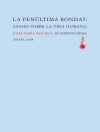The first book to address the role of correspondence in the study of religion, Debating the Faith: Religion and Letter Writing in Great Britain, 1550-1800 shows how letters shaped religious debate in early-modern and Enlightenment Britain, and discusses the materiality of the letters as well as questions of form and genre. Particular attention is paid to the contexts in which letters were composed, sent, read, distributed, and then destroyed, copied or printed, in periods of religious tolerance or persecution. The opening section, ‘Protestant identities’, examines the importance of letters in the shaping of British protestantism from the underground correspondence of Protestant martyrs in the reign of Mary I to dissident letters after the Act of Toleration. ‘Representations of British Catholicism’, explores the way English, Irish and Scottish Catholics, whether in exile or at home, defined their faith, established epistolary networks, and addressed political and religious allegiances in the face of adversity. The last part, ‘Religion, science and philosophy’, focuses on the religious content of correspondence between natural scientists and philosophers.
Mục lục
Introduction.- Religion and letter writing, 1550-1800, G. Schneider.- Part I Protestant Identities.- Scribal Networks and sustainers in Protestant martyrology, M. Greengrass.- Thomas Browne, the Quakers, and a Letter from a Judicious Friend, R. Barbour.- Writing authority in the Interregnum: The pastoral letters of Richard Baxter, A. Searle.- Letters and records of the dissenting congregations: David Crosley, Cripplegate and Baptist Church life, A. Dunan-Page.- Part II Representations of British Catholicism.- ‘For the Greater Glory’: Irish Jesuit letters and the Irish Counter-Reformation, 1598-1626, D. Finnegan.- James ‘III and VIII’ and Catholic Kingship, 1702-1718, D. Szechi.- Every time I receive a Letter from you it gives me new vigour’: The correspondence of Scalan masters, 1762-1783, C. Prunier.- Part III Religion, Science and Philosophy.- Debating the faith: Damaris Masham (1658-1708) and religious controversy, S. Hutton.- Dining out in the Republic of Letters: The rhetoric of scientific correspondence, C. Preston.- Evangelical Calvinists versus the Hutcheson Circle: Debating the faith in Scotland, 1738-1739, J. Moore.- Questioning church doctrine in private correspondence in the eighteenth century: Jean Bouhier’s doubts concerning the soul, A. Thomson.- Index.
Giới thiệu về tác giả
Anne DUNAN-PAGE is Professor of early-modern British studies at the Université de Provence, Aix-Marseille I (France). A specialist in Restoration dissent, she has a particular interest in epistolarity, the relationship between religion and medicine, the early-modern Baptists, and she pursues comparative research on English and French Protestantism. She is the author of Grace Overwhelming: John Bunyan, The Pilgrim’s Progress and the Extremes of the Baptist Mind (Peter Lang, 2006), has edited The Religious Culture of the Huguenots, 1660-1750 (Ashgate, 2006), Les Huguenots dans les îles Britanniques de la Renaissance aux Lumières (Honoré Champion, 2008, with Marie-Christine Munoz), Roger L’Estrange and the Making of Restoration Culture (Ashgate, 2008, with Beth Lynch) and The Cambridge Companion to Bunyan (Cambridge University Press, 2010) She is currently co-editing the correspondence of Sir Thomas Browne, as well as some of his tracts, for the eight-volume Complete Works to be published by Oxford University Press. Clotilde PRUNIER is Professor in British history at the Université Paris-Ouest, Nanterre. She is the author of Anti-Catholic Strategies in Eighteenth-Century Scotland (‘Scottish Studies International 35’, Peter Lang, 2004), which focuses on the struggle between Presbyterians and Catholics in eighteenth-century Scotland, and in particular on how schools were used in the anti-Catholic crusade in the Highlands. She has published articles on eighteenth-century perceptions of the Highlands, on the role of education in eighteenth-century Scotland, and on Scottish Catholic correspondence. Her research has come to focus on the European correspondence of the clandestine Scottish Catholic community in the eighteenth century.












